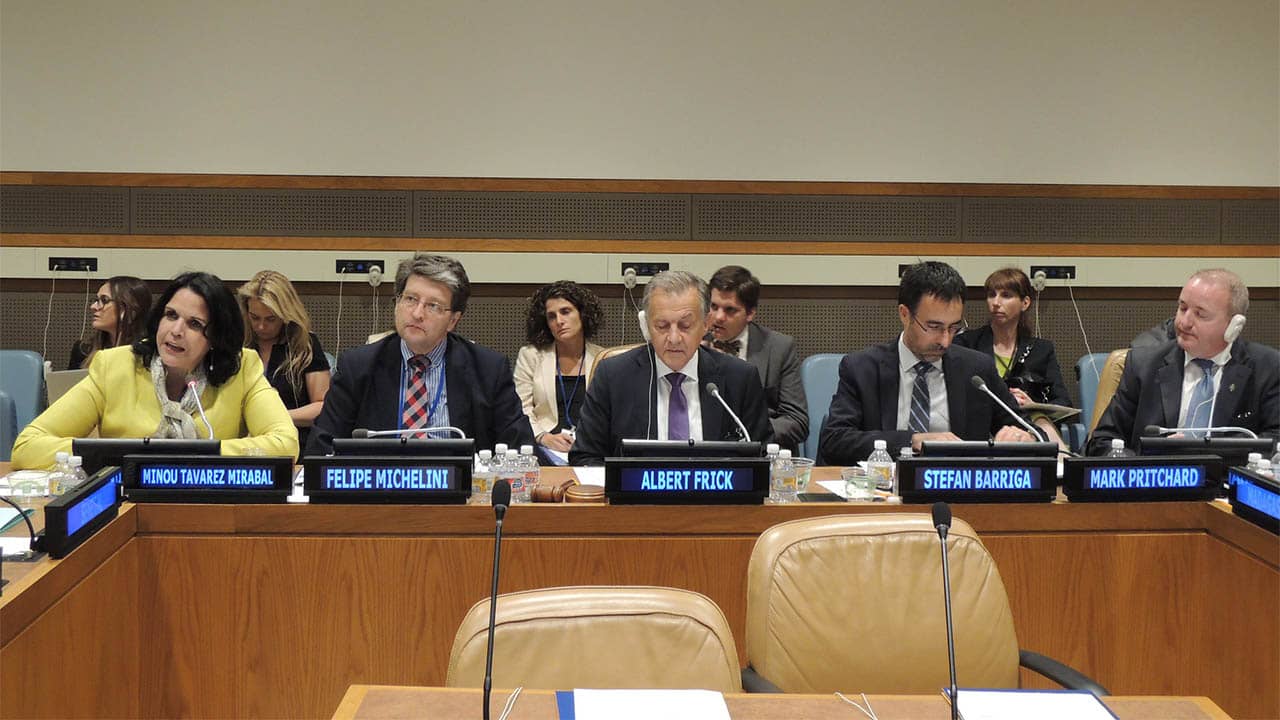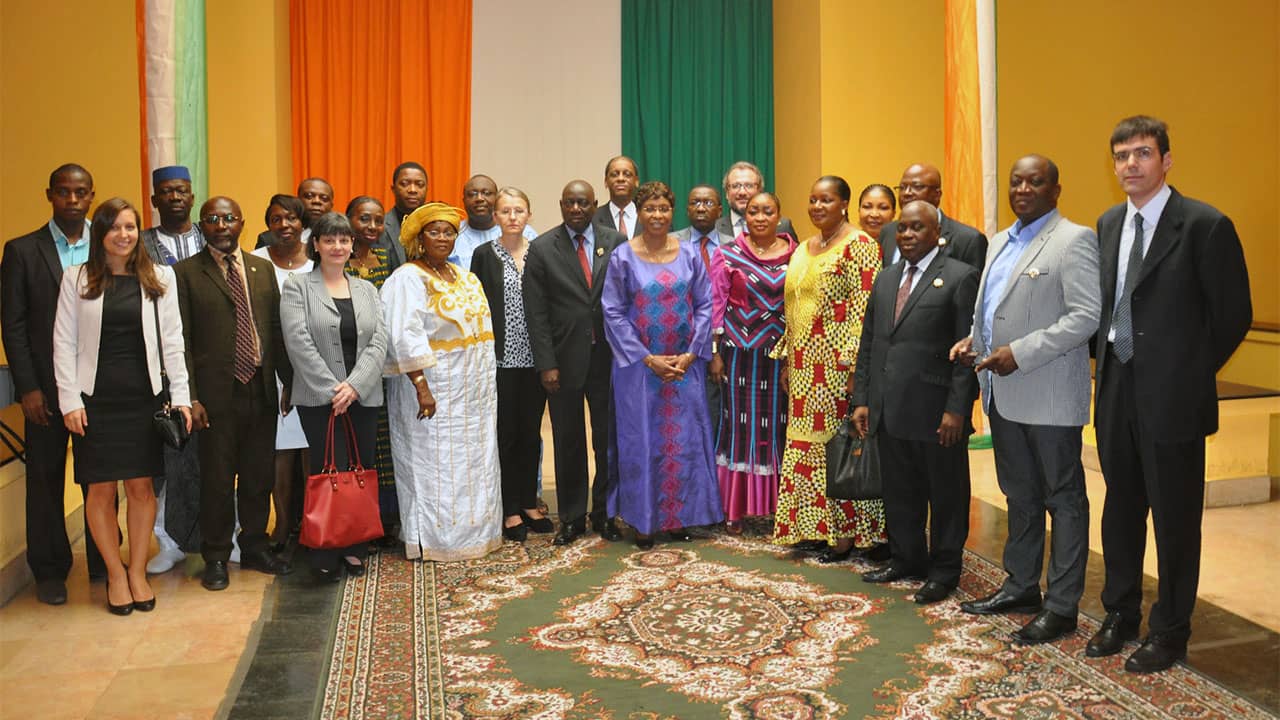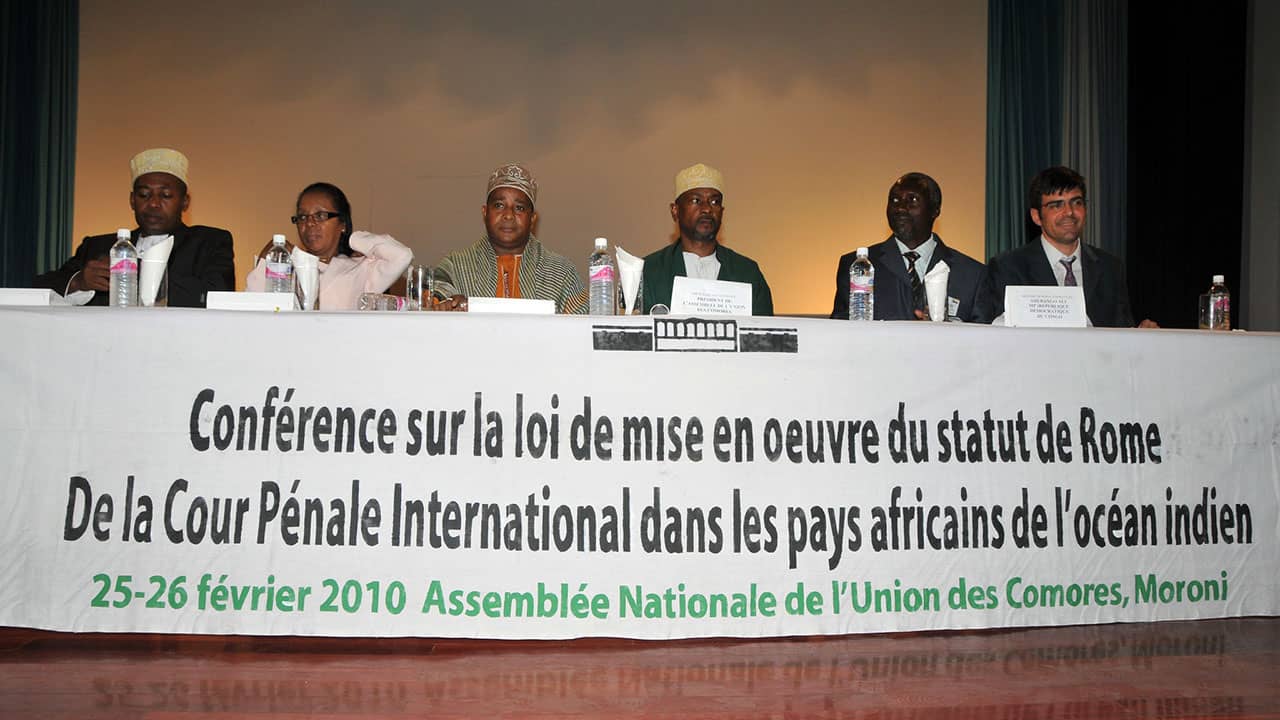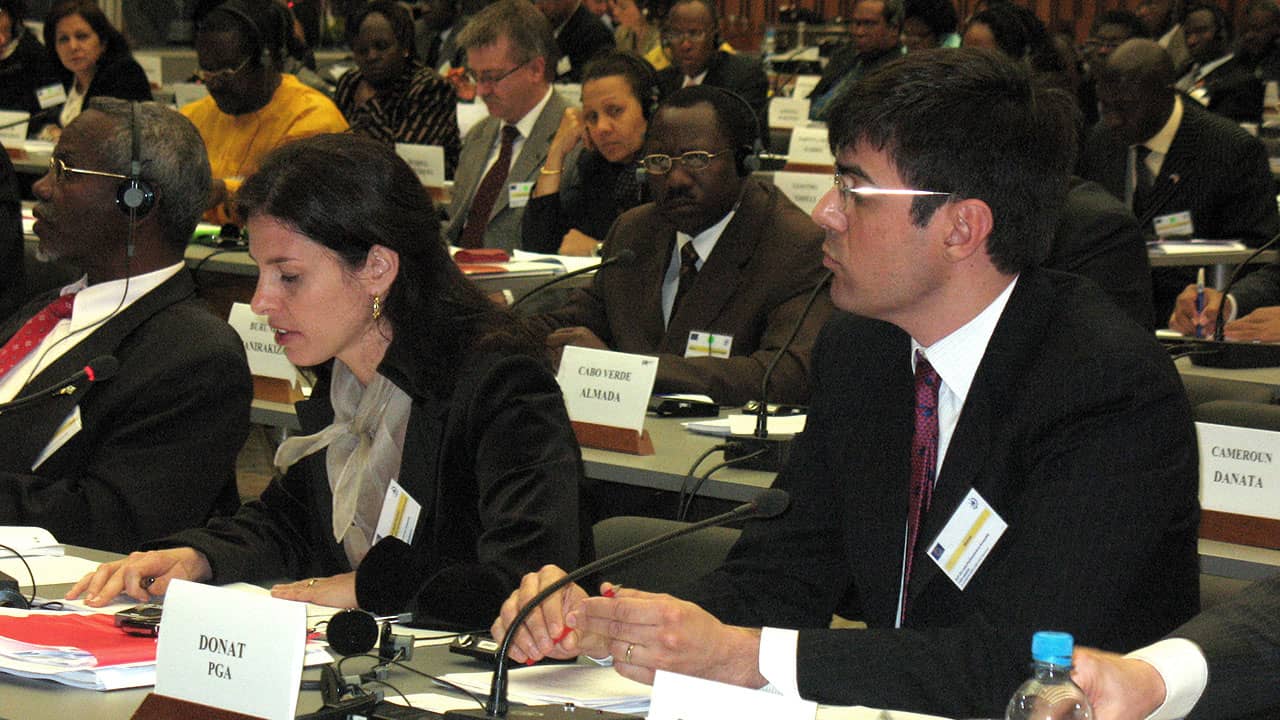Since 2002, PGA has been working in Madagascar, promoting the fight against impunity notably through the ratification and the domestic implementation of the Rome Statute of the International Criminal Court (ICC). The 2009 uprising which led to the resignation of the last elected president of Madagascar, highlights the need for such legislation.
To this effect, in February 2010 PGA invited the Minister of Justice to participate in a PGA Conference on ICC implementing legislation in African Indian Ocean countries in Comoros, who announced her intention to speed up the process to implement the Rome Statute domestically. Since then, PGA had been following up on that matter with the Minister and the Ministry of Justice and in 2012 PGA received a request of technical cooperation to assist Madagascar in the process of adoption of a legislation implementing the Rome Statute. In May 2013, PGA delivered the relevant technical assistance in the form of a comparative study outcome, namely a model legislative text. Therefore, the priority of PGA in Madagascar is the adoption of a national regulatory framework implementing the Rome Statute provisions: PGA is continuing to provide political and technical cooperation to the relevant authorities for that purpose.
Rome Statute
Madagascar, a signatory of the Rome Statute, deposited at the UN its instrument of ratification of the Rome Statute on 14 March 2008. This ratification was the result of a positive vote of the Parliament of Madagascar in 2006, which saw the active involvement of PGA members and former Members, as well as highly qualified staff of Parliament who attended the 2002 PGA/OIF conference on the ICC in Mauritius.
Kampala Amendments of 2010
Madagascar has not yet ratified the Amendments to the Rome Statute adopted by the 2010 Review Conference (Kampala Amendments) on the crime of aggression and on the use of certain weapons in armed conflict not of an international character.
Agreement on Privileges and Immunities of the Court (APIC)
Madagascar signed the APIC on 12 September 2002 but has yet to accede to it.
Additional Agreements
Madagascar has not signed additional agreements of cooperation with the International Criminal Court.
Domestic Implementation of the Rome Statute Status
Madagascar has neither draft nor enacted implementing legislation or legislation on cooperation with the ICC. PGA is providing political and technical assistance for that purpose.
Description of the ICC process and of PGA’s involvement
Former PGA Members have promoted the modification of the constitution to allow ratification and are now working towards the elaboration of a comprehensive implementing legislation.As a follow up to the 2002 Mauritius conference, PGA prepared a study on constitutional compatibility of the Rome Statute and delivered to representatives of the Government and Parliament in meeting that took place in September 2003 at the UN.
In order to reactivate the ICC process, PGA invited the Minister of Justice to its Conference on ICC implementing legislation in African Indian Ocean countries held in Comoros in February 2010, during which she announced her intention to speed up the process to implement the Rome Statute domestically. Following the technical assistance request formulated by Ms. Razanamahasoa, the Minister of Justice, for the adoption comprehensive implementing legislation, PGA has been providing political and technical cooperation, notably through the preparation of a comparative study of legislations implementing the Rome Statute and of a draft-text to domesticate the Rome Statute tailored to the needs of Madagascar.
Other Relevant Information
Universal Periodic Review - Human Rights Council:
Madagascar will be reviewed during the 20th session of the UPR in 2014. For PGA’s work through the UPR click here.
African, Caribbean and Pacific community
As a member of the African, Caribbean and Pacific community (ACP), and as signatory of the revised Cotonou Agreement with of the ACP and European Union, Madagascar has recognized the importance of the ICC as a mechanism for peace and international justice, and has committed to promote the ratification and implementation of the Rome Statute, to seek to take steps towards the ratification and the implementation of the Rome Some Statute, and to fight against international crime giving due regard to the Rome Statute. For more information on the work of PGA within the ACP-EU mechanism. See PGA work through the ACP-EU Joint Parliamentary Assembly.








